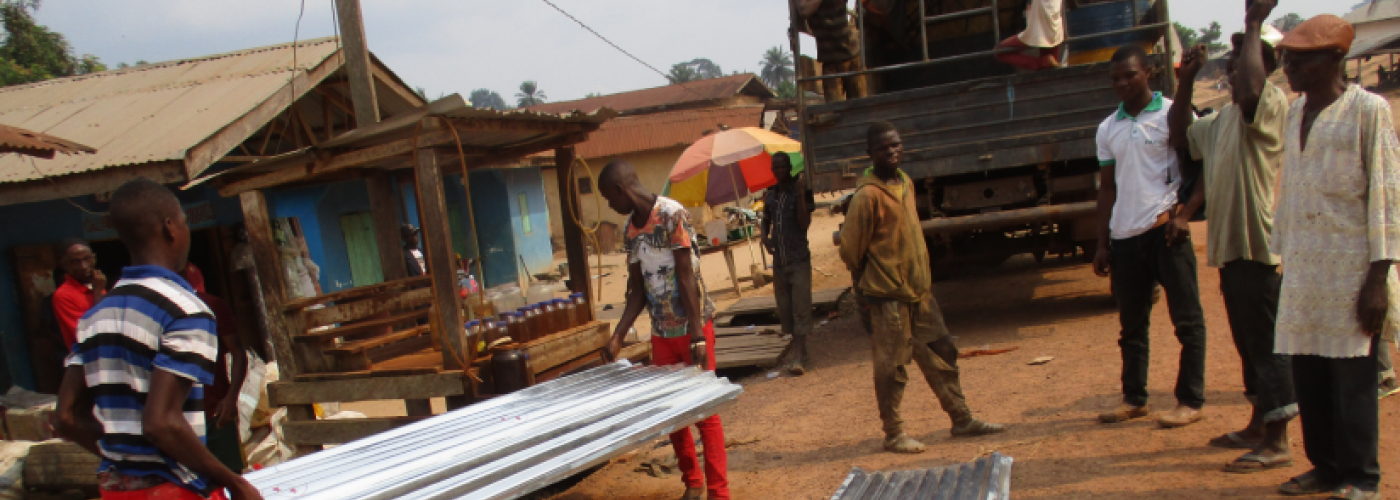Cooperatives Mobilize Local Resources in Liberia
Image

This is the eighth post in the Cooperative Development Learning Series, which highlights learning from USAID’s Cooperative Development Project. Click the links to read the first, second, third, fourth, fifth, sixth, and seventh posts.
This post was authored by Eric Wallace.
In 2010, Sebehill Cocoa Farmers Association (SEKUFA), a purchasing cooperative, was in the business of buying coffee and cocoa from their members in Lofa County, Liberia. Sebehill Cooperative participates in USAID’s Cooperative Development Program (CDP), implemented in Liberia by ACDI/VOCA. Over the past two years, ACDI/VOCA’s CDP program staff have worked with the members of Sebehill Cooperative to increase their ability to apply good agricultural practices, manage their finances, plan for the future of their businesses, and manage their cooperative effectively. Before 2017, Cooperative members were accustomed to traveling long distances, sometimes as far as neighboring Sierra Leone, to buy food, construction materials, and other essential goods. The Cooperative members needed a place to buy these items that was cheaper and easier to get to.
Training provided through CDP spurred the cooperative members to realize that they had options for starting businesses they had not considered before. Sebehill decided to open a retail/agro-business store. Initially, the store carried two items: bundles of zinc to use as roofing material and bags of rice. Over time, their inventory expanded to include other types of foodstuffs, construction materials, and farm tools. Sebehill Cooperative buys and transports these goods, saving its members time and money by not having to travel as far to purchase them. Profits from the store are an extra source of income for the cooperative. Between August 2017 and April 2018, the store generated USD$15,000 in revenue. It may not sound like much, but between August 2017 to April 2018 the store’s revenue per cooperative member was USD$7.50. That is a significant figure considering 84 percent of Liberia’s population lives on less than US$1.25 a day. From July to November 2017, the number of cooperative members increased from 1,890 to 1,970, in part due to access to the cooperative store as well as access to the cooperative’s truck.
There are several factors which led Sebehill to become a successful and adaptive cooperative business. They have clear channels of communication between members and the board. Membership is inclusive regardless of age and sex and places a strong emphasis on female leadership and training of all members in value addition activities. They are market-oriented, which enables them to grasp potentially profitable opportunities like opening a store. With approximately 1,970 members, they produce and market more product than their competitors, averaging approximately 170 tons of cacao and 13 tons of coffee annually, indicating a high level of patronage and member engagement.
The Sebehill cooperative’s experience opening their store can be a teachable moment for donors and implementing partners in terms of local resource mobilization and the power of the cooperative business model. Cooperative businesses are adaptive vehicles for individuals to exercise autonomy, gain control of their livelihoods, and capture more economic value from their labor. Sebehill cooperative used that autonomy to decide for themselves what their members needed and took action with guidance and support from CDP implementing partner, ACDI/VOCA. When cooperative businesses are in the driver’s seat, donors and implementing partners should play a facilitative role in supporting the coop to better meet its members’ needs. By playing a facilitative role in cooperative development activities, cooperative development organizations can help cooperatives make sustainable gains that are not dependent on outside donors.
Eric Wallace is the Director of Inclusive Market Systems at ACDI/VOCA, supporting the USAID Farmer-to-Farmer and Cooperative Development Program activities. Previously, Eric served as Director of the Farmer-to-Farmer Special Program Support Project at the Volunteers for Economic Growth Alliance (VEGA). He also started and led the Farmer-to-Farmer Program at NCBA CLUSA and was a volunteer recruiter at CNFA. Eric served as a Peace Corps volunteer in Donetsk, Ukraine, from 2001 to 2003. He earned his B.A. at Reed College and his M.P.A. at George Washington University.


